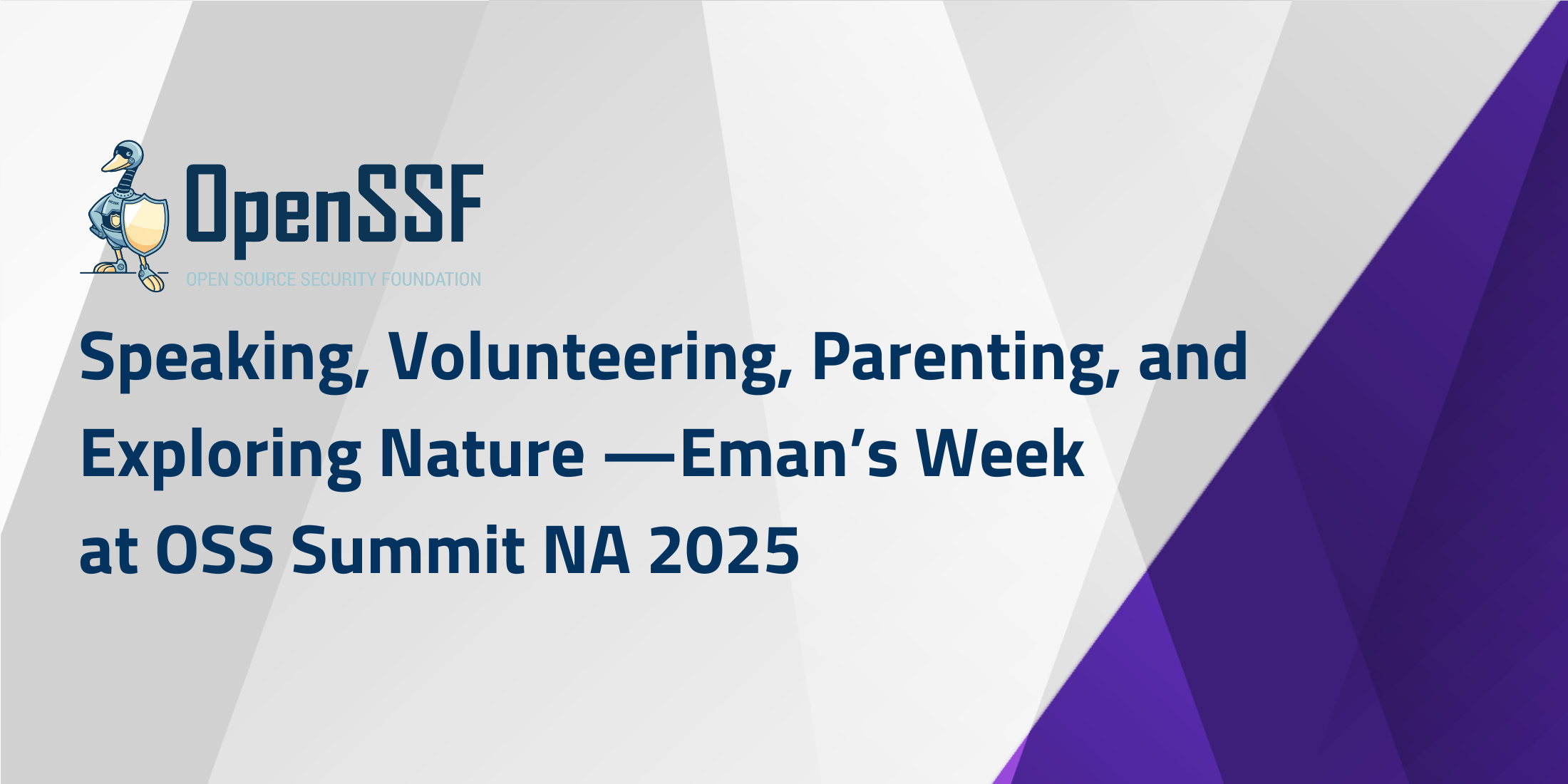


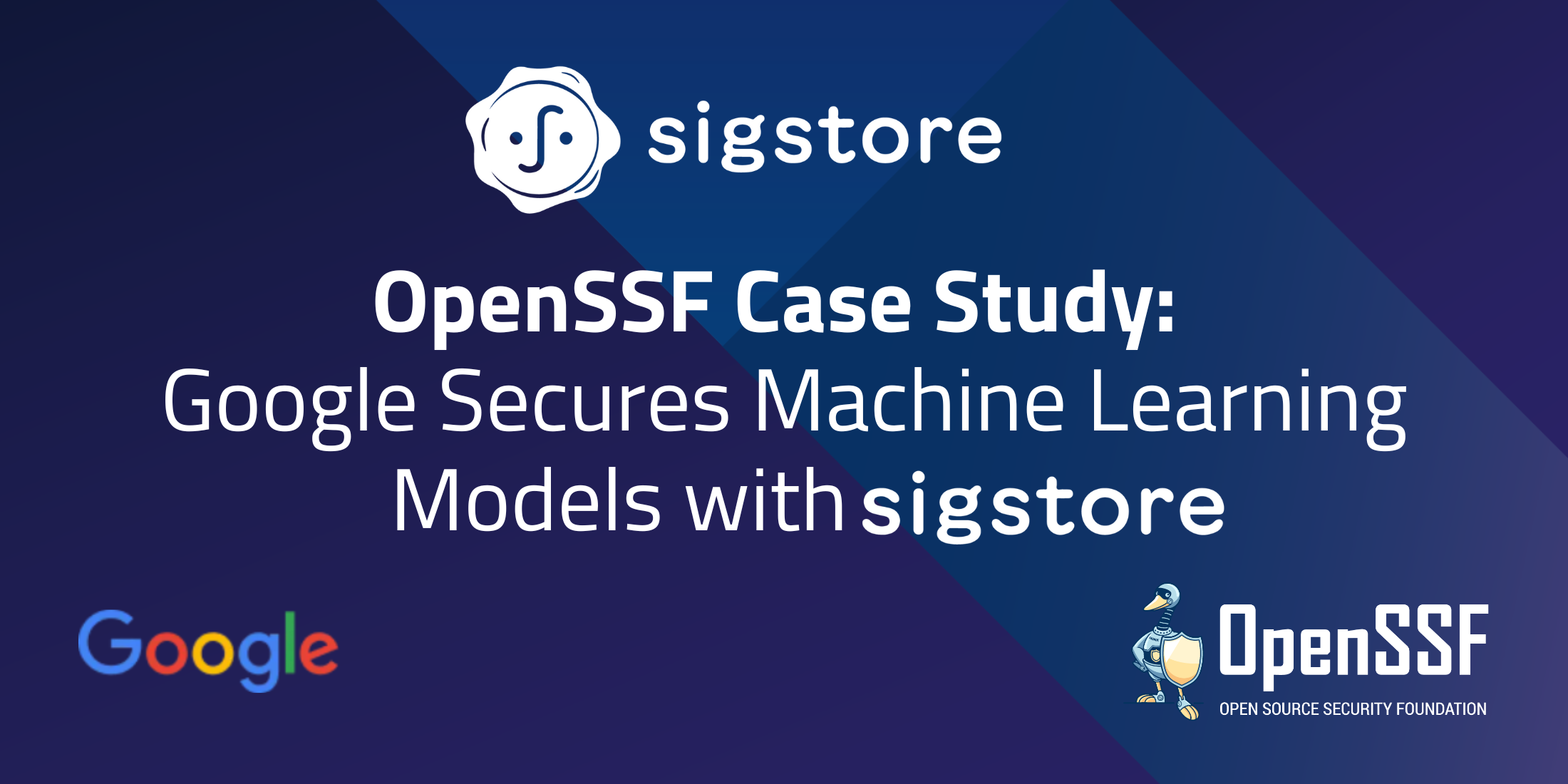
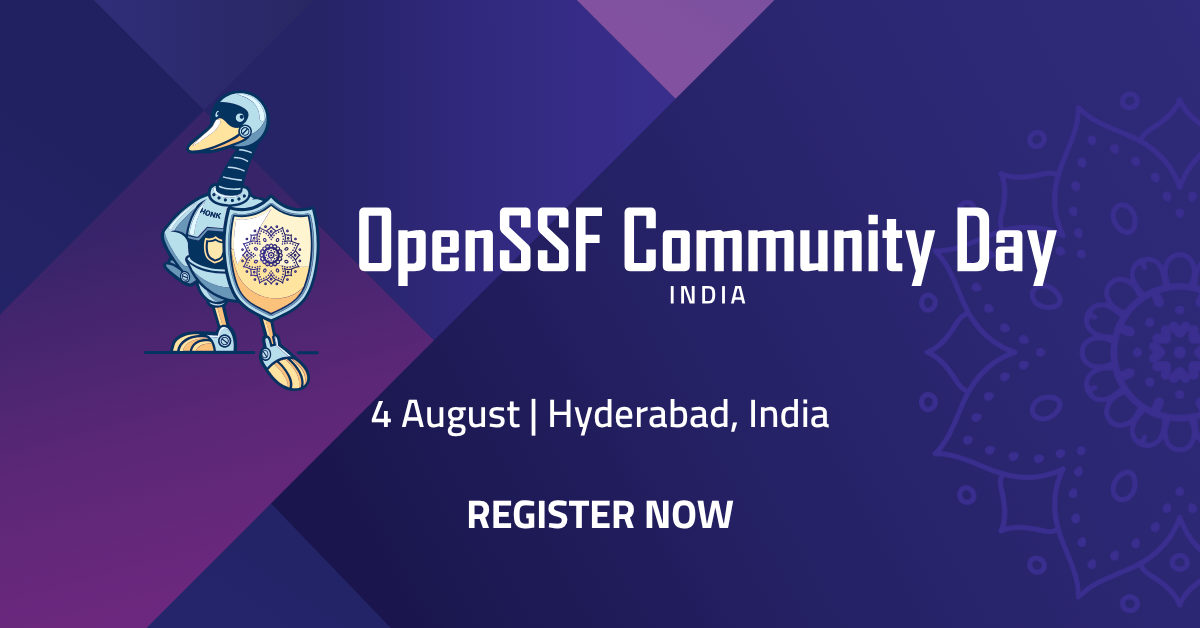
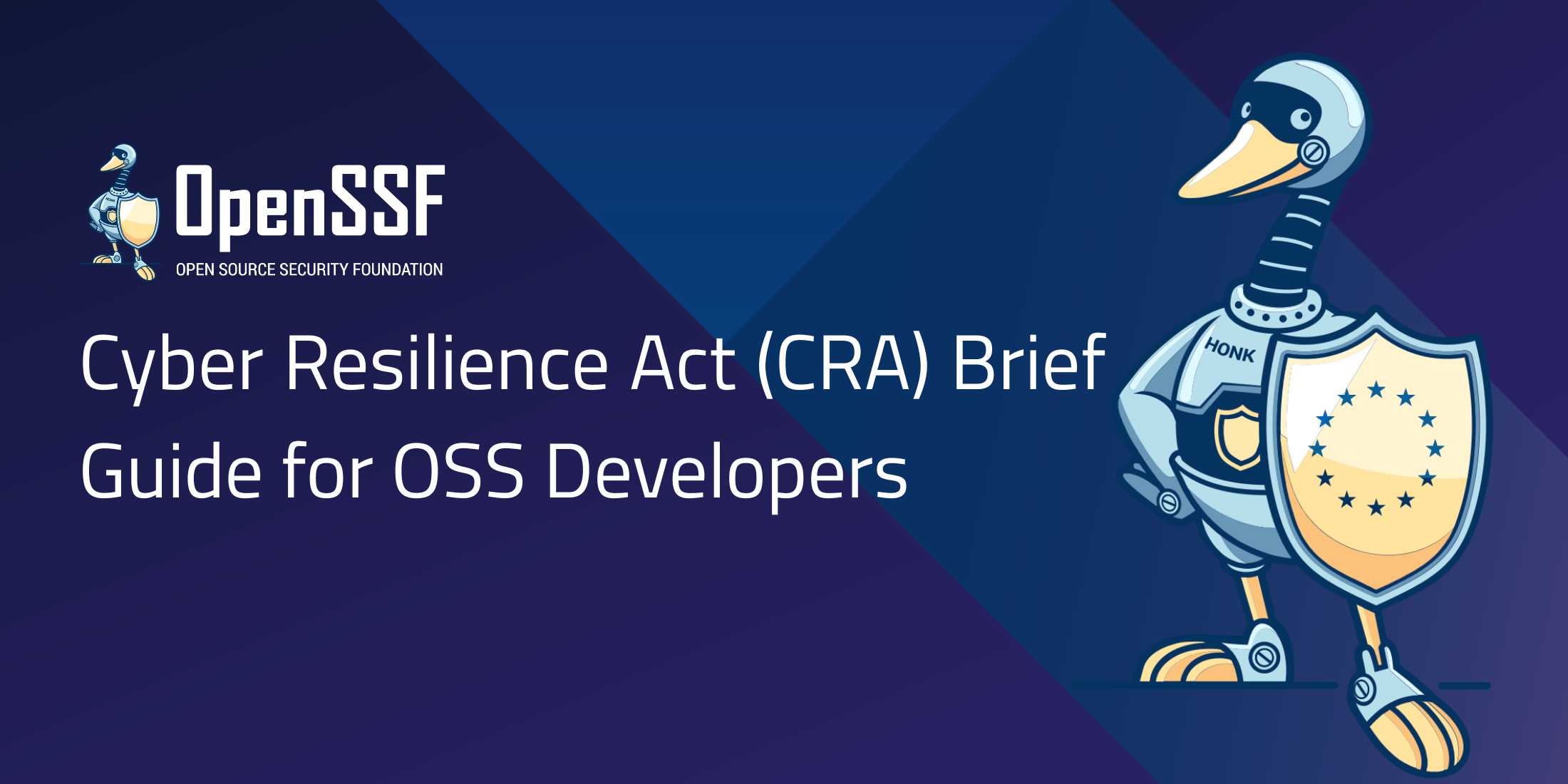
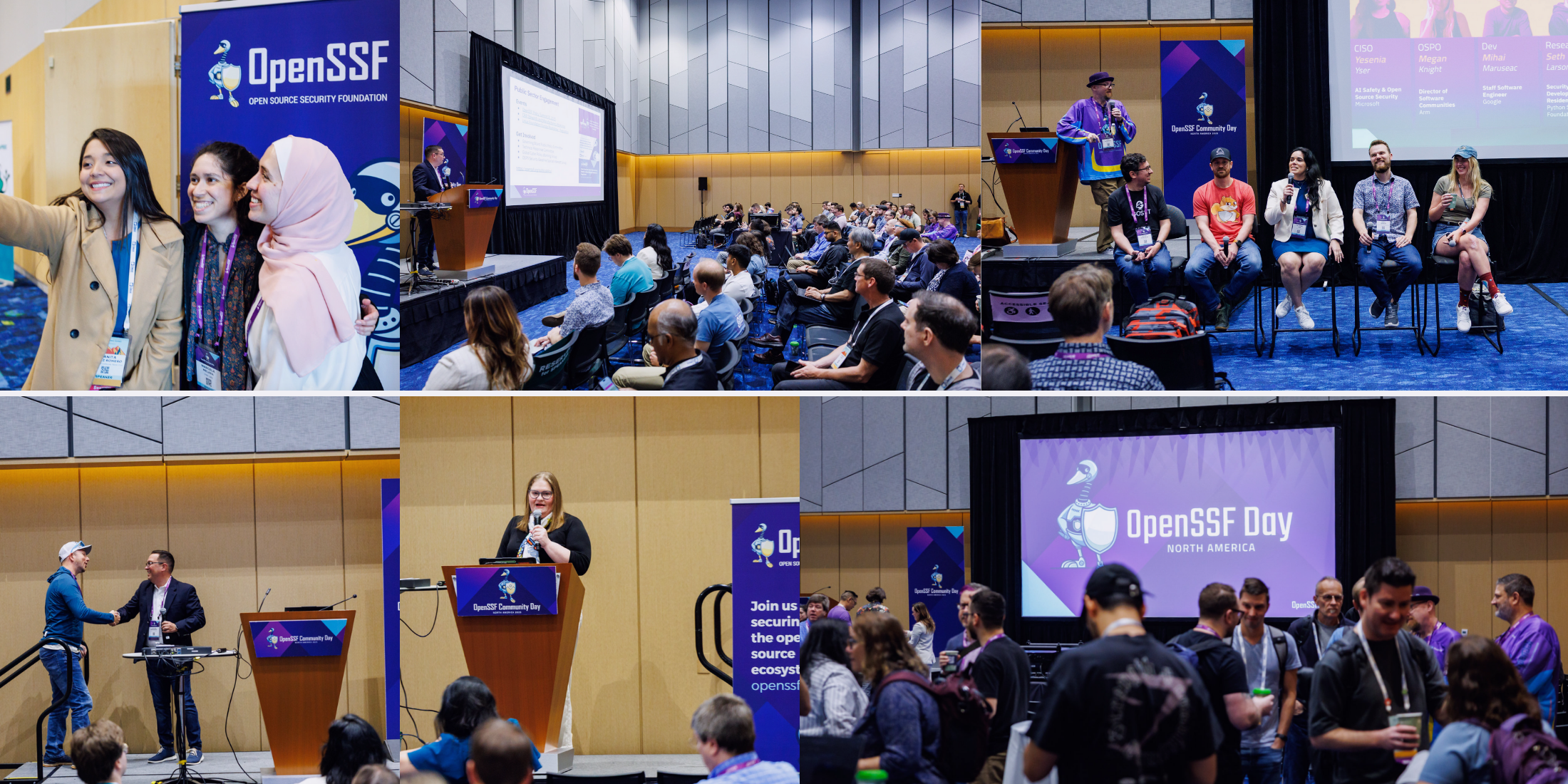
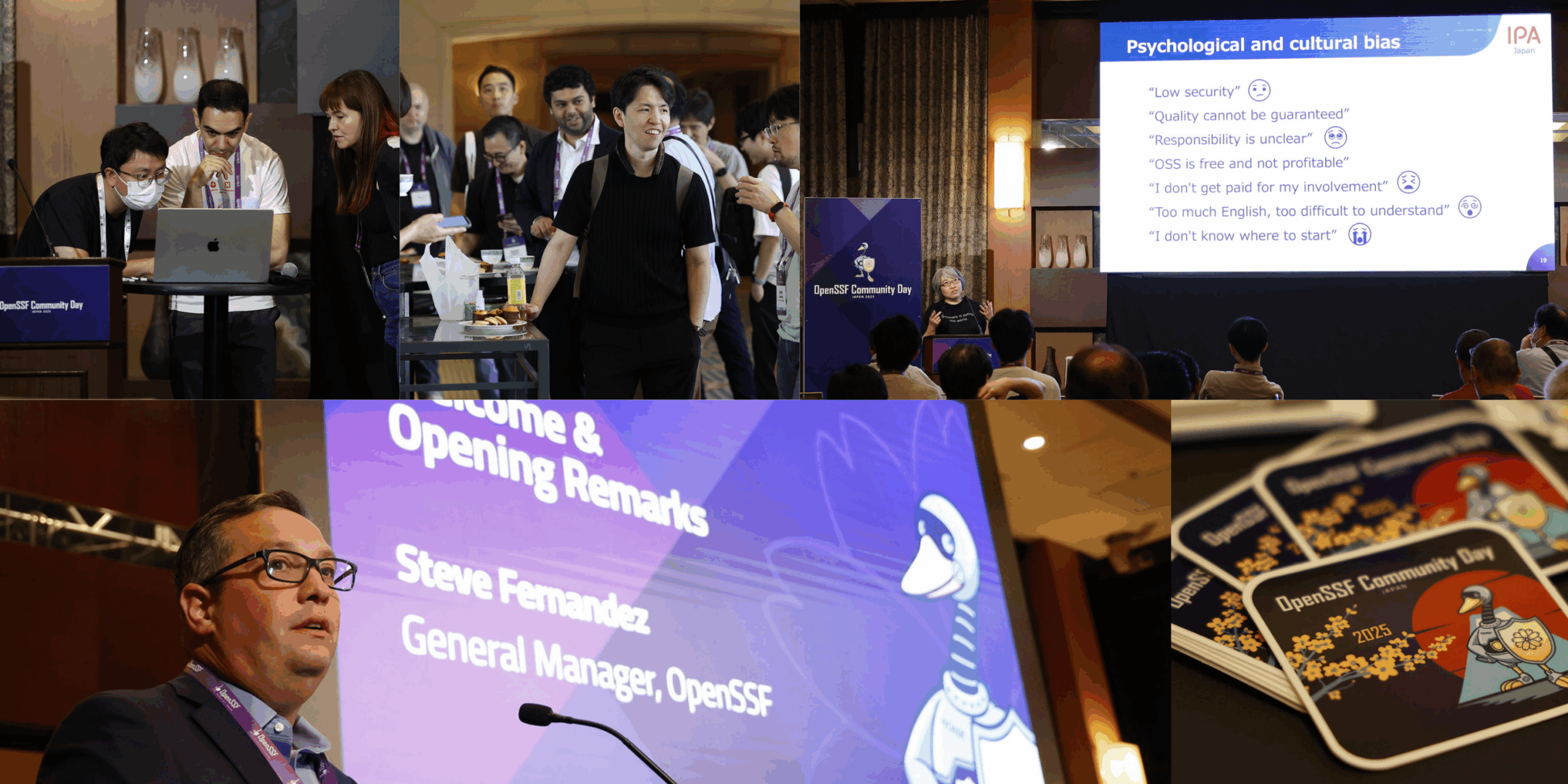
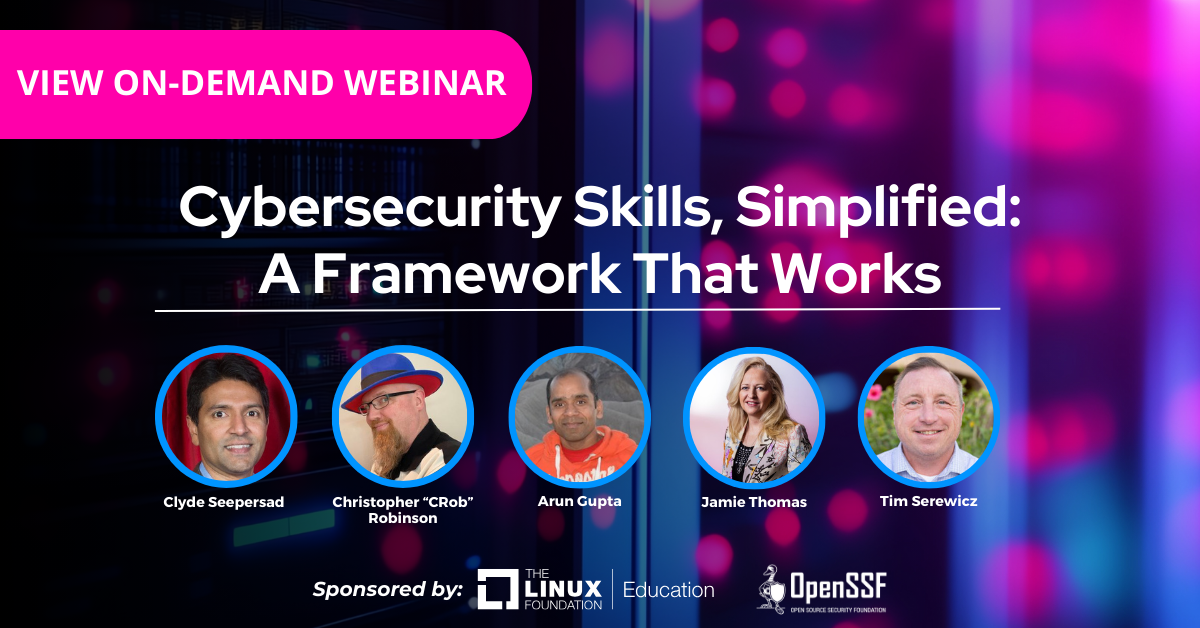
A Framework That Works
Cybersecurity isn’t just the responsibility of a dedicated team anymore. Whether you’re an engineer, a product owner, or part of the executive suite, your day-to-day decisions have a direct impact on your organization’s security. That was the clear message from the expert panel featured in our webinar, Cybersecurity Skills: A Framework That Works — now available to watch on demand.
Leaders from IBM, Intel, Linux Foundation Education and the Open Source Security Foundation (OpenSSF) share real-world insights on how their organizations are tackling one of today’s biggest challenges: upskilling the entire workforce in security. The panelists discussed the new Cybersecurity Skills Framework, an open, flexible tool designed to help teams identify the right skills for the right roles — and actually get started improving them. It’s practical, customizable, and already helping global organizations raise their security posture.
In the webinar, you’ll hear how to:
The conversation is packed with actionable advice, whether you’re building a security training program or just want to understand where you or your team stands.
🎥Access the Cybersecurity Skills, Simplified Webinar
BONUS: Receive a 30% Discount for any Security-Related Course, Certification or Bundle Just for Watching
Need to Close the Skills Gap Across Your Team or Enterprise?
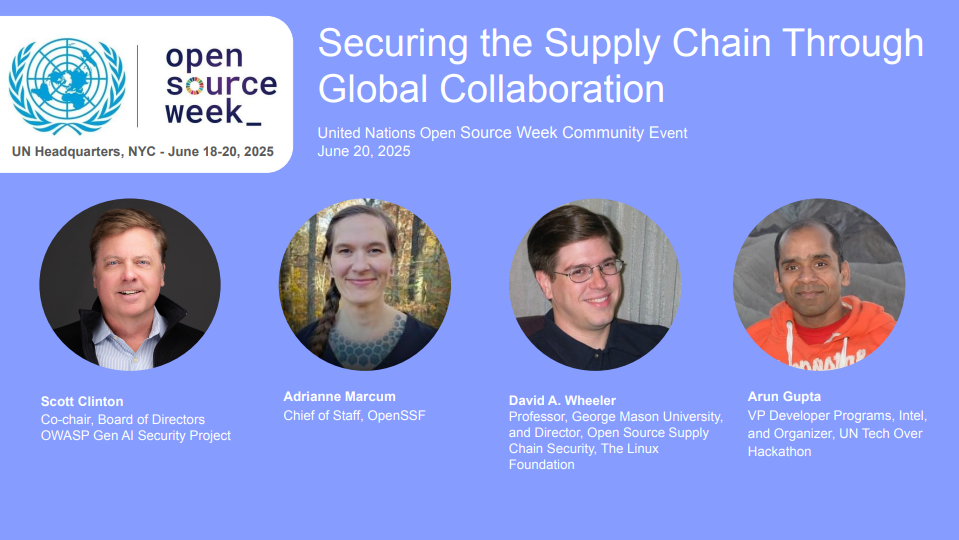
OpenSSF participated in the 2025 UN Open Source Week, a global gathering of participants hosted by the United Nations Office for Digital and Emerging Technologies, focused on harnessing open source innovation to achieve the Sustainable Development Goals (SDGs). Held in New York City, the event gathered technology leaders, policymakers, and open source advocates to address critical global challenges.
On June 20, OpenSSF joined a featured panel discussion during a community-led side event curated by RISE Research Institutes of Sweden, OpenForum Europe, and CURIOSS. The panel, titled “Securing the Supply Chain Through Global Collaboration,” explored how standardized practices and international cooperation enhance open source software security and align with emerging regulatory frameworks such as the EU Cyber Resilience Act (CRA).
Panelists included:
The session highlighted the critical need for international cooperation to secure global software systems effectively. Panelists discussed the emerging role of generative AI (GenAI) and its implications for open source security. The importance of developer education in how to develop secure software was also noted; as developers must increasingly review GenAI results, they will need more, not less, education.
“It was both a great opportunity to share the work of the Gen AI Security Project and insights on the challenges and benefits generative AI brings to our discussion on securing open source and the software supply chain,” said Scott Clinton.
“The United Nations brought together a global community where nations become collaborators rather than competitors,” added Arun Gupta. “It’s thrilling to see the open source community advancing solutions for global problems.”
Earlier that week (June 16–17), the UN Tech Over Hackathon drew over 200 global innovators to address SDG-aligned challenges through open source technology. The hackathon featured three distinct tracks:
The Maintain-a-Thon, organized in partnership with Alpha-Omega and the Sovereign Tech Agency, engaged over 40 participants across 15 breakout sessions. Senior maintainers offered guidance on issue triage, documentation improvements, and best practices for long-term project maintenance, reinforcing open source software’s foundational role in global digital infrastructure.
🔗 Read the official UN Tech Over press release
🔗 Read Arun Gupta’s blog post on “Ahead of the Storm”
UN Open Source Week 2025 underscored the importance of collaborative innovation in securing and sustaining digital public infrastructure. Aligned with its mission, OpenSSF remains dedicated to facilitating global cooperation, promoting secure-by-design best practices, providing educational resources, and supporting innovative technical initiatives. By empowering maintainers and contributors of all skill levels, OpenSSF aims to ensure open source software remains trusted, secure, and reliable for everyone.
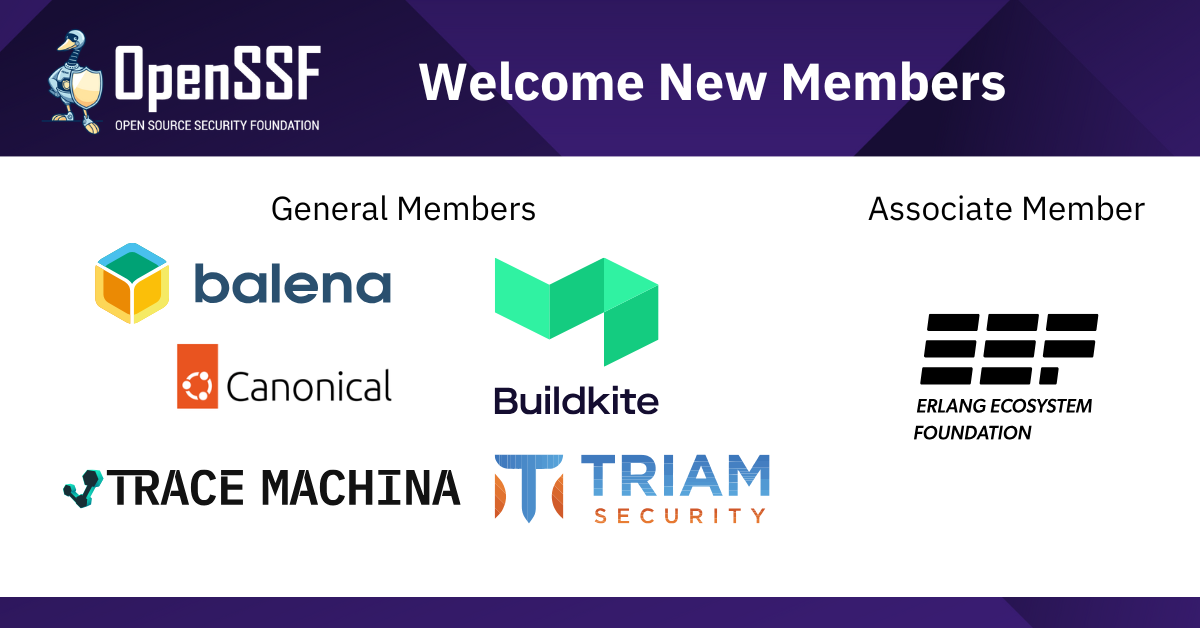
Foundation furthers mission to enhance the security of open source software
DENVER – OpenSSF Community Day North America – June 26, 2025 – The Open Source Security Foundation (OpenSSF), a cross-industry initiative of the Linux Foundation that focuses on sustainably securing open source software (OSS), welcomes six new members from leading technology and security companies. New general members include balena, Buildkite, Canonical, Trace Machina, and Triam Security and associate members include Erlang Ecosystem Foundation (EEF). The Foundation also presents the Golden Egg Award during OpenSSF Community Day NA 2025.
“We are thrilled to welcome six new member companies and honor existing contributors during our annual North America Community Day event this week,” said Steve Fernandez, General Manager at OpenSSF. “As companies expand their global footprint and depend more and more on interconnected technologies, it is vital we work together to advance open source security at every layer – from code to systems to people. With the support of our new members, we can share best practices, push for standards and ensure security is front and center in all development.”
The OpenSSF continues to shine a light on those who go above and beyond in our community with the Golden Egg Awards. The Golden Egg symbolizes gratitude for awardees’ selfless dedication to securing open source projects through community engagement, engineering, innovation, and thoughtful leadership. This year, we celebrate:
Their efforts have made a lasting impact on the open source security ecosystem, and we are deeply grateful for their continued contributions.
OpenSSF is supported by more than 3,156 technical contributors across OpenSSF projects – providing a vendor-neutral partner to affiliated open source foundations and projects. Recent project updates include:
New and existing OpenSSF members are gathering this week in Denver at the annual OpenSSF Community Day NA 2025. Join the community at upcoming 2025 OpenSSF-hosted events, including OpenSSF Community Day India, OpenSSF Community Day Europe, OpenSSF Community Day Korea, and Open Source SecurityCon 2025.
“At balena, we understand that securing edge computing and IoT solutions is critical for all companies deploying connected devices. As developers focused on enabling reliable and secure operations with balenaCloud, we’re deeply committed to sharing our knowledge and expertise. We’re proud to join OpenSSF to contribute to open collaboration, believing that together we can build more mature security solutions that truly help companies protect their edge fleets and raise collective awareness across the open-source ecosystem.”
– Harald Fischer, Security Aspect Lead, balena
“Joining OpenSSF is a natural extension of Buildkite’s mission to empower teams with secure, scalable, and resilient software delivery. With Buildkite Package Registries, our customers get SLSA-compliant software provenance built in. There’s no complex setup or extra tooling required. We’ve done the heavy lifting so teams can securely publish trusted artifacts from Buildkite Pipelines with minimal effort. We’re excited to collaborate with the OpenSSF community to raise the bar for open source software supply chain security.”
– Ken Thompson, Vice President of Product Management, Buildkite
“Protecting the security of the open source ecosystem is not an easy feat, nor one that can be tackled by any single industry player. OpenSSF leads projects that are shaping this vast landscape. Canonical is proud to join OpenSSF on its mission to spearhead open source security across the entire market. For over 20 years we have delivered security-focused products and services across a broad spectrum of open source technologies. In today’s world, software security, reliability, and provenance is more important than ever. Together we will write the next chapter for open source security frameworks, processes and tools for the benefit of all users.”
– Luci Stanescu, Security Engineering Manager, Canonical
“Starting in 2024, the EEF’s Security WG focused community resources on improving our supply chain infrastructure and tooling to enable us to comply with present and upcoming cybersecurity laws and directives. This year we achieved OpenChain Certification (ISO/IEC 5230) for the core Erlang and Elixir libraries and tooling, and also became the default CVE Numbering Authority (CNA) for all open-source Erlang, Elixir and Gleam language packages. Joining the OpenSSF has been instrumental in connecting us to experts in the field and facilitating relationships with security practitioners in other open-source projects.”
– Alistair Woodman, Board Chair, Erlang Ecosystem Foundation
“Trace Machina is a technology company, founded in September 2023, that builds infrastructure software for developers to go faster. Our current core product, NativeLink, is a build caching and remote execution platform that speeds up compute-heavy work. As a company we believe both in building our products open source whenever possible, and in supporting the open source ecosystem and community. We believe open source software is a crucial philosophy in technology, especially in the security space. We’re thrilled to join the OpenSSF as a member organization and to continue being active in this wonderful community.”
– Tyrone Greenfield, Chief of Staff, Trace Machina
“Triam Security is proud to join the Open-Source Security Foundation to support its mission of strengthening the security posture of critical open source software. As container security vulnerabilities continue to pose significant risks to the software supply chain, our expertise in implementing SLSA Level 3/4 controls and building near-zero CVE solutions through CleanStart aligns perfectly with OpenSSF’s supply chain security initiatives. We look forward to collaborating with the community on advancing SLSA adoption, developing security best practices, improving vulnerability management processes, and promoting standards that enhance the security, transparency, and trust in the open-source ecosystem.”
– Biswajit De, CTO, Triam Security
About the OpenSSF
The Open Source Security Foundation (OpenSSF) is a cross-industry organization at the Linux Foundation that brings together the industry’s most important open source security initiatives and the individuals and companies that support them. The OpenSSF is committed to collaboration and working both upstream and with existing communities to advance open source security for all. For more information, please visit us at openssf.org.
Media Contact
Natasha Woods
The Linux Foundation
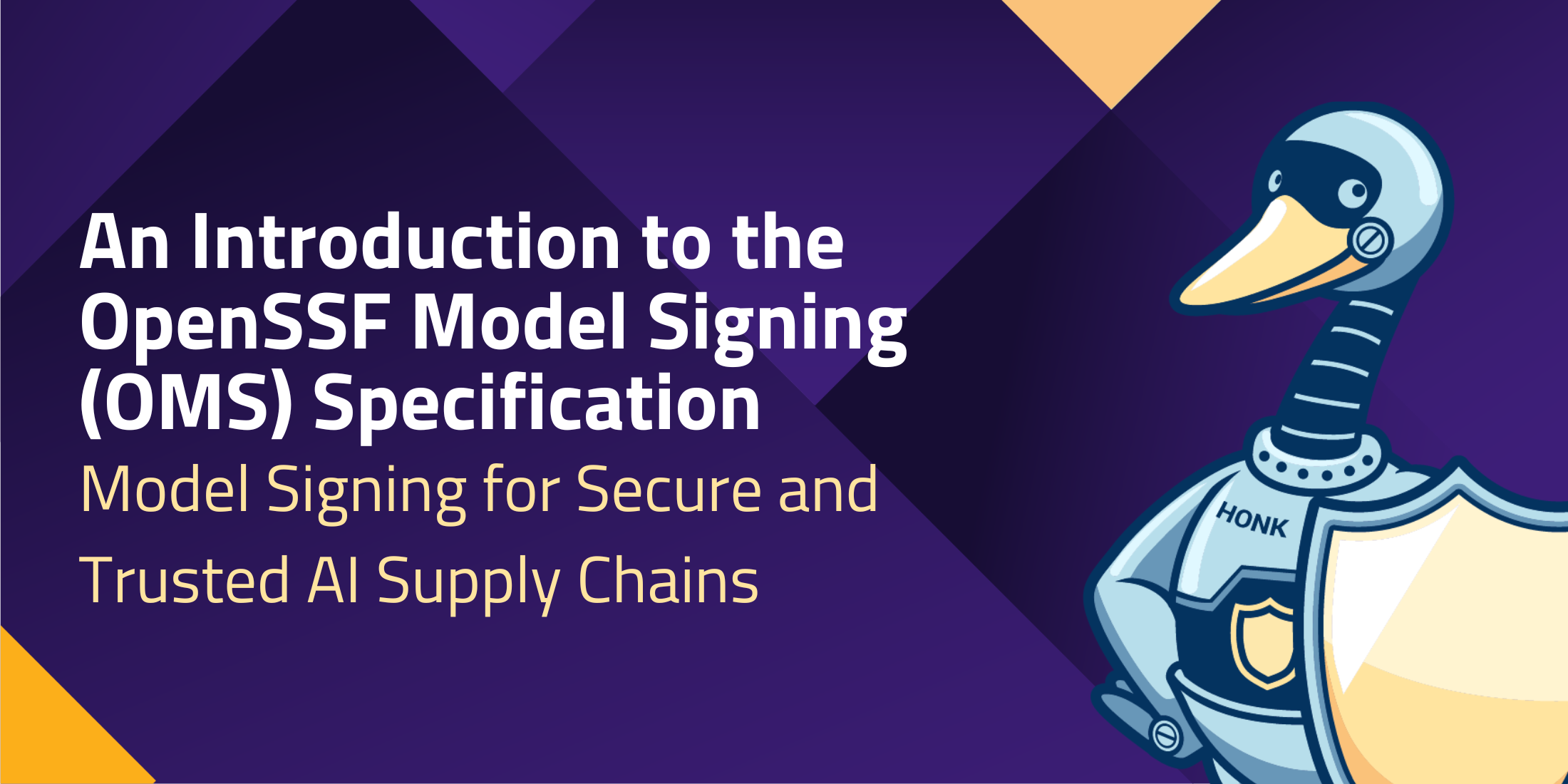
By Mihai Maruseac (Google), Eoin Wickens (HiddenLayer), Daniel Major (NVIDIA), Martin Sablotny (NVIDIA)
As AI adoption continues to accelerate, so does the need to secure the AI supply chain. Organizations want to be able to verify that the models they build, deploy, or consume are authentic, untampered, and compliant with internal policies and external regulations. From tampered models to poisoned datasets, the risks facing production AI systems are growing — and the industry is responding.
In collaboration with industry partners, the Open Source Security Foundation (OpenSSF)’s AI/ML Working Group recently delivered a model signing solution. Today, we are formalizing the signature format as OpenSSF Model Signing (OMS): a flexible and implementation-agnostic standard for model signing, purpose-built for the unique requirements of AI workflows.
Model signing is a cryptographic process that creates a verifiable record of the origin and integrity of machine learning models. Recipients can verify that a model was published by the expected source, and has not subsequently been tampered with.
Signing AI artifacts is an essential step in building trust and accountability across the AI supply chain. For projects that depend on open source foundational models, project teams can verify the models they are building upon are the ones they trust. Organizations can trace the integrity of models — whether models are developed in-house, shared between teams, or deployed into production.
Key stakeholders that benefit from model signing:
Model signing uses cryptographic keys to ensure the integrity and authenticity of an AI model. A signing program uses a private key to generate a digital signature for the model. This signature can then be verified by anyone using the corresponding public key. These keys can be generated a-priori, obtained from signing certificates, or generated transparently during the Sigstore signing flow.If verification succeeds, the model is confirmed as untampered and authentic; if it fails, the model may have been altered or is untrusted.
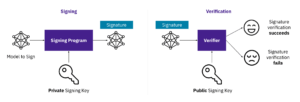
Figure 1: Model Signing Diagram
OMS is designed to handle the complexity of modern AI systems, supporting any type of model format and models of any size. Instead of treating each file independently, OMS uses a detached OMS Signature Format that can represent multiple related artifacts—such as model weights, configuration files, tokenizers, and datasets—in a single, verifiable unit.
The OMS Signature Format includes:
The OMS Signature File follows the Sigstore Bundle Format, ensuring maximum compatibility with existing Sigstore (a graduated OpenSSF project) ecosystem tooling. This detached format allows verification without modifying or repackaging the original content, making it easier to integrate into existing workflows and distribution systems.
OMS is PKI-agnostic, supporting a wide range of signing options, including:
This flexibility enables organizations to adopt OMS without changing their existing key management or trust models.
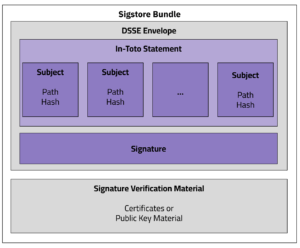
Figure 1. OMS Signature Format
As reference implementations to speed adoption, OMS offers both a command-line interface (CLI) for lightweight operational use and a Python library for deep integration into CI/CD pipelines, automated publishing flows, and model hubs. Other library integrations are planned.
Other examples, including signing using PKCS#11, can be found in the model-signing documentation.
This design enables better interoperability across tools and vendors, reduces manual steps in model validation, and helps establish a consistent trust foundation across the AI lifecycle.
The release of OMS marks a major step forward in securing the AI supply chain. By enabling organizations to verify the integrity, provenance, and trustworthiness of machine learning artifacts, OMS lays the foundation for safer, more transparent AI development and deployment.
Backed by broad industry collaboration and designed with real-world workflows in mind, OMS is ready for adoption today. Whether integrating model signing into CI/CD pipelines, enforcing provenance policies, or distributing models at scale, OMS provides the tools and flexibility to meet enterprise needs.
This is just the first step towards a future of secure AI supply chains. The OpenSSF AI/ML Working Group is engaging with the Coalition for Secure AI to incorporate other AI metadata into the OMS Signature Format, such as embedding rich metadata such as training data sources, model version, hardware used, and compliance attributes.
To get started, explore the OMS specification, try the CLI and library, and join the OpenSSF AI/ML Working Group to help shape the future of trusted AI.
Special thanks to the contributors driving this effort forward, including Laurent Simon, Rich Harang, and the many others at Google, HiddenLayer, NVIDIA, Red Hat, Intel, Meta, IBM, Microsoft, and in the Sigstore, Coalition for Secure AI, and OpenSSF communities.
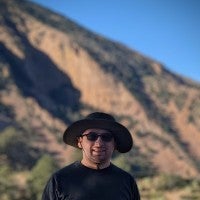 Mihai Maruseac is a member of the Google Open Source Security Team (GOSST), working on Supply Chain Security for ML. He is a co-lead on a Secure AI Framework (SAIF) workstream from Google. Under OpenSSF, Mihai chairs the AI/ML working group and the model signing project. Mihai is also a GUAC maintainer. Before joining GOSST, Mihai created the TensorFlow Security team and prior to Google, he worked on adding Differential Privacy to Machine Learning algorithms. Mihai has a PhD in Differential Privacy from UMass Boston.
Mihai Maruseac is a member of the Google Open Source Security Team (GOSST), working on Supply Chain Security for ML. He is a co-lead on a Secure AI Framework (SAIF) workstream from Google. Under OpenSSF, Mihai chairs the AI/ML working group and the model signing project. Mihai is also a GUAC maintainer. Before joining GOSST, Mihai created the TensorFlow Security team and prior to Google, he worked on adding Differential Privacy to Machine Learning algorithms. Mihai has a PhD in Differential Privacy from UMass Boston.
 Eoin Wickens, Director of Threat Intelligence at HiddenLayer, specializes in AI security, threat research, and malware reverse engineering. He has authored numerous articles on AI security, co-authored a book on cyber threat intelligence, and spoken at conferences such as SANS AI Cybersecurity Summit, BSides SF, LABSCON, and 44CON, and delivered the 2024 ACM SCORED opening keynote.
Eoin Wickens, Director of Threat Intelligence at HiddenLayer, specializes in AI security, threat research, and malware reverse engineering. He has authored numerous articles on AI security, co-authored a book on cyber threat intelligence, and spoken at conferences such as SANS AI Cybersecurity Summit, BSides SF, LABSCON, and 44CON, and delivered the 2024 ACM SCORED opening keynote.
 Daniel Major is a Distinguished Security Architect at NVIDIA, where he provides security leadership in areas such as code signing, device PKI, ML deployments and mobile operating systems. Previously, as Principal Security Architect at BlackBerry, he played a key role in leading the mobile phone division’s transition from BlackBerry 10 OS to Android. When not working, Daniel can be found planning his next travel adventure.
Daniel Major is a Distinguished Security Architect at NVIDIA, where he provides security leadership in areas such as code signing, device PKI, ML deployments and mobile operating systems. Previously, as Principal Security Architect at BlackBerry, he played a key role in leading the mobile phone division’s transition from BlackBerry 10 OS to Android. When not working, Daniel can be found planning his next travel adventure.
 Martin Sablotny is a security architect for AI/ML at NVIDIA working on identifying existing gaps in AI security and researching solutions. He received his Ph.D. in computing science from the University of Glasgow in 2023. Before joining NVIDIA, he worked as a security researcher in the German military and conducted research in using AI for security at Google.
Martin Sablotny is a security architect for AI/ML at NVIDIA working on identifying existing gaps in AI security and researching solutions. He received his Ph.D. in computing science from the University of Glasgow in 2023. Before joining NVIDIA, he worked as a security researcher in the German military and conducted research in using AI for security at Google.